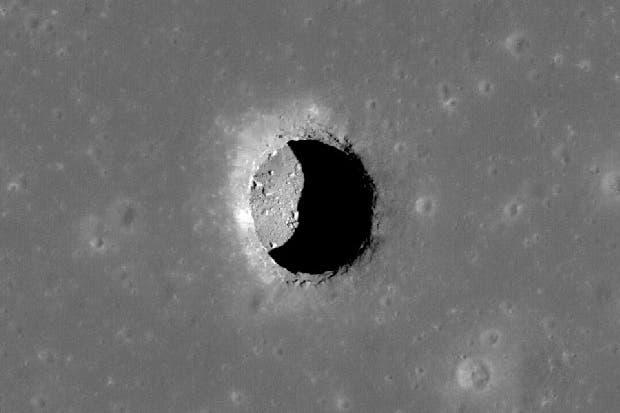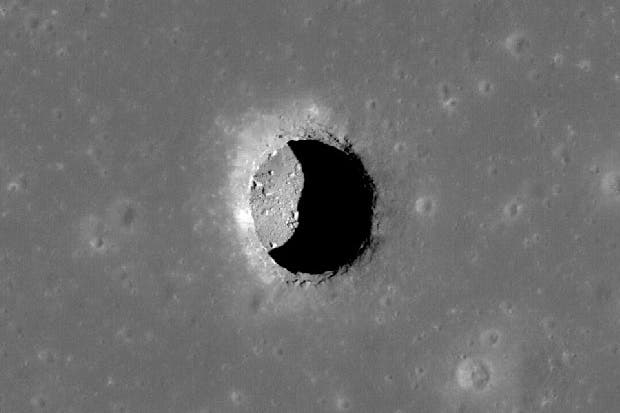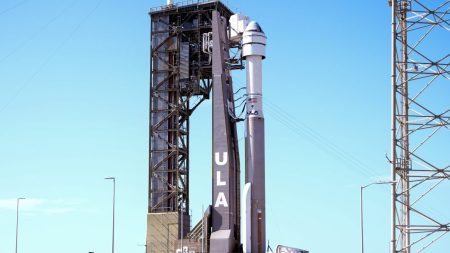
Back in 2008, the Japanese Kaguya spacecraft made a fascinating discovery when it found a metres-deep cave in the Sea of Tranquility. Amazed by the find, NASA had its orbiting Lunar Reconnaissance Orbiter Camera (LROC) to have in the depth scan of the area, which came back with high res images, like the one above. Scientists believe these are actually entrances to a complex labyrinth of lunar tunnels. Now, one of the most renowned Russian cosmonaut Sergei Krikalev claims that these caves are actually an idea spot for placing a colony.
“They could be entrances to a geologic wonderland,” Mark Robinson of Arizona State University, principal investigator for the LRO camera, said in 2010. “We believe the giant holes are skylights that formed when the ceilings of underground lava tubes collapsed.”
The lunar tunnels are thought to have formed during the moon’s early history, when it had active volcanoes and streams of lava used to flow in tubes.
“This new discovery that the moon may be a rather porous body could significantly alter our approach to founding lunar bases,” said Krikalev. “There wouldn’t be any need to dig the lunar soil and build walls and ceilings. It would be enough to use an inflatable module with a hard outer shell to — roughly speaking — seal the caves.”
The moon’s surface is extremely harsh, and any eventual based built on it would get exposed to copious amounts of radiation and meteor showers. Underground, however, such a based would be ideally placed, protected a number of hazardous factors. It would be, in fact, a lot more cost effective, as well, since instead of building walls or setting up modules, an inflatable tent would be put to use, with its hard outer shell sealing the tunnel. Boris Kryuchkov, the deputy science head at the training centre, estimates that the first lunar colony could be built by 2030.
Krikalev has more than two years cumulative time in space, is the first Russian to fly aboard the space shuttle, a MIR astronaut on several missions, part of the first International Space Station crew, a return as mission commander for another crew a few years ago.
source









